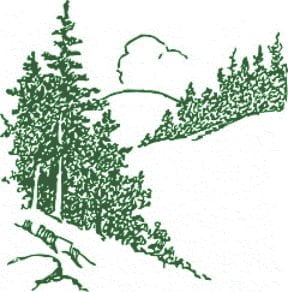“One of the most delightful things about a garden is the anticipation it provides.”
~W.E. Johns, English WWI pilot and writer of adventure stories
Weather data dating back to 1895 indicates this spring as the warmest on record. The eastern two-thirds of the country received the brunt of unseasonable heat. Even here on the West Coast, our typical May gray and June gloom has not predominated. This may be the explanation for my heightened interest in gardening this year. The weather has been spectacular. Who can resist?
Gardening is basically just a continuation of our childhood. We like to get dirty, be it a tidy sandbox or just a good old-fashioned patch of mud. Add some water and, “…ain’t we got fun!” Skip ahead a few years, include a bit more sophistication and you’ve got yourself a garden.
Gardens are created for many reasons, some out of real necessity, others just for enjoyment. Most of us, including myself, just want to soak in the beauty of the day. What – if anything – we actually harvest is only a bonus.
Webster’s definition of garden: “A plot of ground where herbs, fruits, flowers or vegetables are grown.” Hmmm … well, I have herbs (rosemary and sage), fruits (apples, grapes, lemons and strawberries), flowers (you name it!) and vegetables (tomatoes, bell peppers, chili peppers and pumpkins). Land where vegetables are grown solely for household use the dictionary calls a “kitchen garden” and has a history all its own.
As America was colonized, settlers searched for fertile land. To have a reliable food source for one’s family figured prominently in the early American psyche. Security of this type and economic independence were often elusive dreams in the Old World. The kitchen garden was the answer to these needs.
In the 1800s as the country became more industrialized and less agrarian in nature, gardens were less important to the household economy. But after the Civil War and the building of the transcontinental railroad, city folks craved the fresh air and the simple pleasures of country life, so out came the hand trowels again. Gardening remained an important element of American culture.
WWII brought our country together in a way some historians believe will never be replicated. During these years, most families, whether in the city or rural areas, grew “victory gardens.” According to my grandma and mom it was considered the “patriotic thing to do.” Once again gardens provided a sense of security and independence not only for us, but for the rest of the world to see. The garden’s meaning went way beyond the kitchen table.
Pumpkins! I may need a machete to get into the yard, their lush-green vines are creeping closer everyday. Must be the abundant sunshine and the promise of more to come.
The coastline remains foggy, but at our higher elevation the weather brings clear warm days in the 80s, dipping to around 60 at night.
Next week: summer!
Sue Kilpatrick is a
Crescenta Valley resident and
Official Skywarn Spotter for the
National Weather Service. Reach her at suelkilpatrick@gmail.com.

